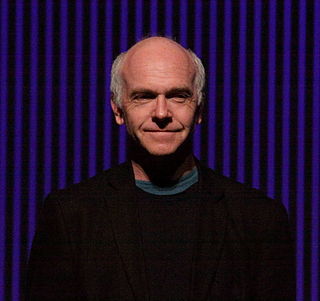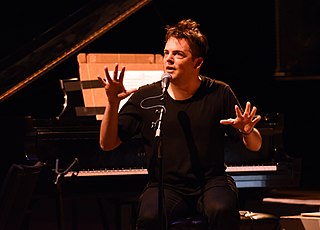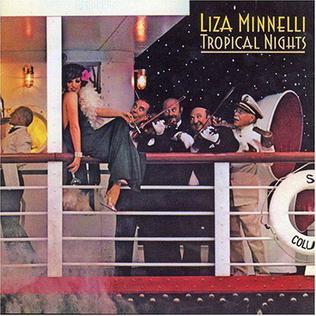Related Research Articles

John Oswald is a Canadian composer, saxophonist, media artist and dancer. His best known project is Plunderphonics, the practice of making new music out of previously existing recordings.

Richard Gavin Bryars is an English composer and double bassist. He has worked in jazz, free improvisation, minimalism, historicism, avant-garde, and experimental music.

In music, tape loops are loops of magnetic tape used to create repetitive, rhythmic musical patterns or dense layers of sound when played on a tape recorder. Originating in the 1940s with the work of Pierre Schaeffer, they were used among contemporary composers of 1950s and 1960s, such as Éliane Radigue, Steve Reich, Terry Riley, and Karlheinz Stockhausen, who used them to create phase patterns, rhythms, textures, and timbres. Popular music authors of 1960s and 1970s, particularly in psychedelic, progressive and ambient genres, used tape loops to accompany their music with innovative sound effects. In the 1980s, analog audio and tape loops with it gave way to digital audio and application of computers to generate and process sound.

Holly Cole is a Canadian jazz singer and actress. For many years she performed with her group The Holly Cole Trio.

Discreet Music is the fourth studio album by Brian Eno, and the first released under his full name. The album is a minimalist work, with the titular A-side consisting of one 30-minute piece featuring synthesizer and tape delay. The B-side features three variations on Canon in D Major by Johann Pachelbel, performed by the Cockpit Ensemble and conducted by Gavin Bryars.
"Revolution 9" is a sound collage from the Beatles' 1968 self-titled double album. The composition, credited to Lennon–McCartney, was created primarily by John Lennon with assistance from Yoko Ono and George Harrison. Lennon said he was trying to paint a picture of a revolution using sound. The composition was influenced by the avant-garde style of Ono as well as the musique concrète works of composers such as Edgard Varèse and Karlheinz Stockhausen.

Third is a live and studio album by the English rock band Soft Machine, released as their third overall in June 1970 by CBS Records. It is a double album with a single composition on each of the four sides, and was the first of two albums recorded with a four-piece line-up of keyboardist Mike Ratledge, drummer and vocalist Robert Wyatt, saxophonist Elton Dean, and bass guitarist Hugh Hopper. Third marks a shift in the group's sound from their psychedelic origins towards jazz rock and electronic music.

Iarla Ó Lionáird is an Irish singer and record producer. He sings in the traditional sean-nós style. He was a member of the Afro Celt Sound System and is a member of the Irish-American supergroup The Gloaming. He has recorded several solo albums for Real World Records. He appeared in the 2015 film Brooklyn singing an a cappella version of the Irish song "Casadh an tSúgáin".
Come Out is a 1966 piece by American composer Steve Reich. Reich was asked to edit down tape footage into a form of collage for a benefit for the Harlem Six and Come Out was a byproduct of the collage's production. The Harlem Six were six black youths arrested for a murder of Margit Sugar, a Hungarian refugee, in Harlem in the weeks following the Little Fruit Stand Riot of 1964. Only one of the six was responsible while the lead witness is generally considered the actual perpetrator. Truman Nelson, a civil rights activist and New Yorker who had asked Reich to compose a sound collage that was separate from Come Out, gave him a collection of tapes with recorded voices to use as source material. Nelson agreed to give Reich creative freedom with the tapes that he presented him for the sound collage. Come Out was a loop of four seconds from the more than 70 hours of tapes Nelson presented to Reich.

Kerry Andrew is an English composer, performer and author.

Richard "Kid" Strange is an English writer, actor, musician, and curator, who was the founder and front man of mid-1970s protopunk art rock band Doctors of Madness.

Nico Asher Muhly is an American contemporary classical music composer and arranger who has worked and recorded with both classical and pop musicians. A prolific composer, he has composed for many notable symphony orchestras and chamber ensembles and has had two operas commissioned by the Metropolitan Opera. Since 2006, he has released nine studio albums, many of which are collaborative, including 2017's Planetarium with Sufjan Stevens, Bryce Dessner & James McAlister. He is a member of the Icelandic music collective and record label Bedroom Community.

Jon Boden is a singer, composer and musician, best known as lead singer and main arranger of Bellowhead. His first instrument is the fiddle and he is a proponent of "English traditional fiddle style" and also of "fiddle singing", both of which he employed in Bellowhead, in the duo Spiers & Boden, and previously as a member of Eliza Carthy’s Ratcatchers.

God Is My DJ is the fifteenth studio album by Italian singer-songwriter Alice, released in 1999 on WEA/Warner Music.

Simon Bookish is the stage name of Leo Chadburn, a British musician and composer known for his work in experimental, electronic, pop, and classical music. His music has been broadcast on BBC Radio 1, BBC Radio 3, BBC Radio 6 Music, and Resonance FM. Originally from Coalville, Leicestershire, he moved to London and trained at the Guildhall School of Music and Drama from 1997 to 2001.

The Crossing is an American professional chamber choir, conducted by Donald Nally and based in Philadelphia, Pennsylvania. It focuses on new music, commission and premiere works, and collaborates with various venues and instrumental ensembles.

Doctor Ox's Experiment is an opera in two acts by Gavin Bryars. It has an English-language libretto by Blake Morrison after the novella of the same name by Jules Verne. It was first performed on 15 June 1998 at the London Coliseum by English National Opera (ENO) who co-commissioned the opera with BBC Television.
The Sinking of the Titanic is a work by British minimalist composer Gavin Bryars. Inspired by the story that the band on the RMS Titanic continued to perform as the ship sank in 1912, it imagines how the music performed by the band would reverberate through the water some time after they ceased performing. Composed between 1969 and 1972, the work is now considered one of the classics of British classical experimental music.
Irma is a 1969 experimental opera by artist Tom Phillips, Fred Orton and Gavin Bryars.

Tropical Nights is the eighth studio album by American singer and actress Liza Minnelli, released by Columbia Records in 1977.
References
- ↑ Schaefer, John. New Sounds: A Listener's Guide to New Music . Harper & Row, 1987. 59. ISBN 0-06-055054-6
- ↑ Presenter: Janina Ramirez; Producer: Jerome Weatherald (10 April 2019). "Composer Gavin Bryars, Isabella Hammad, Opera singers sing pop". Front Row. 6:20 minutes in. BBC. BBC Radio 4 . Retrieved 3 May 2019.
- ↑ Black, James E. "His Love Never Failed Me". Hymnary.org. Hall-Mack Company 1911.
- ↑ Howse, Christopher. "The Assurance of Hope". Continuum International Publishing Group, 2006. xix. ISBN 0-8264-8271-6
- ↑ Bryars, Gavin. "Jesus' Blood Never Failed Me Yet". Archived from the original on 10 August 2012. Retrieved 14 July 2012.
- ↑ "The Dance: 'May B' by Marin". The New York Times. 19 February 1986. Retrieved 28 April 2013.
- ↑ "May B, Théâtre du Rond-Point, Paris" . Financial Times. 21 November 2012. Archived from the original on 11 December 2022. Retrieved 28 April 2013.
- ↑ "Reviews from The Horizons – Art, Culture and Lifestyles from India". The Horizons. Archived from the original on 17 July 2011. Retrieved 8 June 2010.
- ↑ "The Music Tapes: Tiny Desk Concert". NPR Music. 20 December 2011. Retrieved 16 July 2012.
- ↑ "Episode 35: Professor James Harcombe". 20 May 2018.
- ↑ "Me Old Beef Pal". YouTube .
- ↑ Presenter: Janina Ramirez; Producer: Jerome Weatherald (10 April 2019). "Composer Gavin Bryars, Isabella Hammad, Opera singers sing pop". Front Row. 1:08 minutes in. BBC. BBC Radio 4 . Retrieved 3 May 2019.